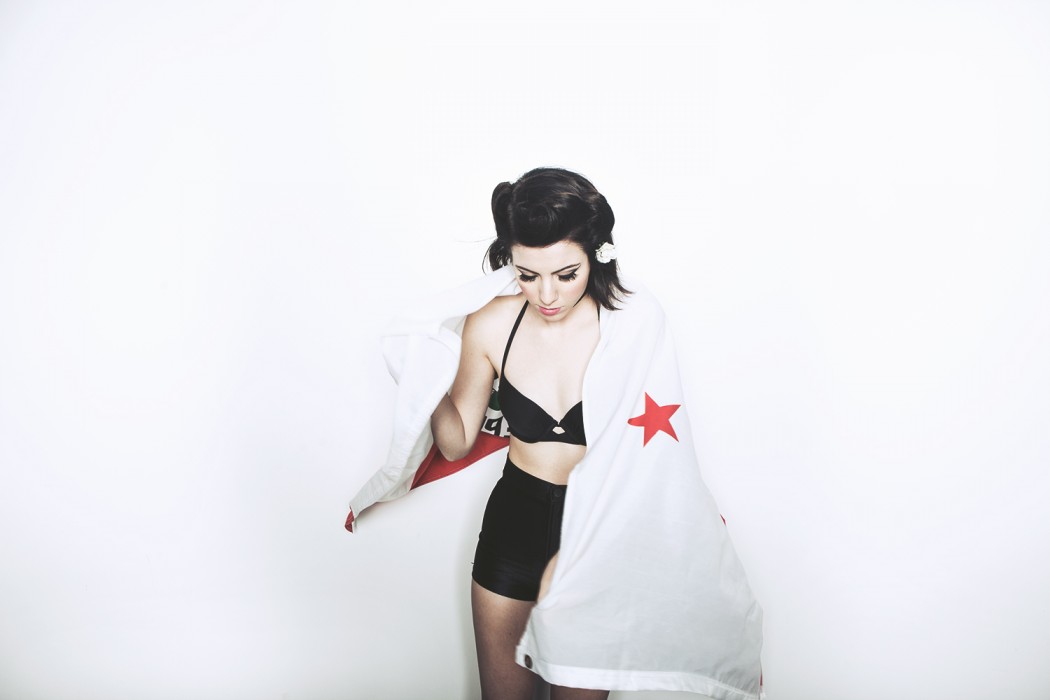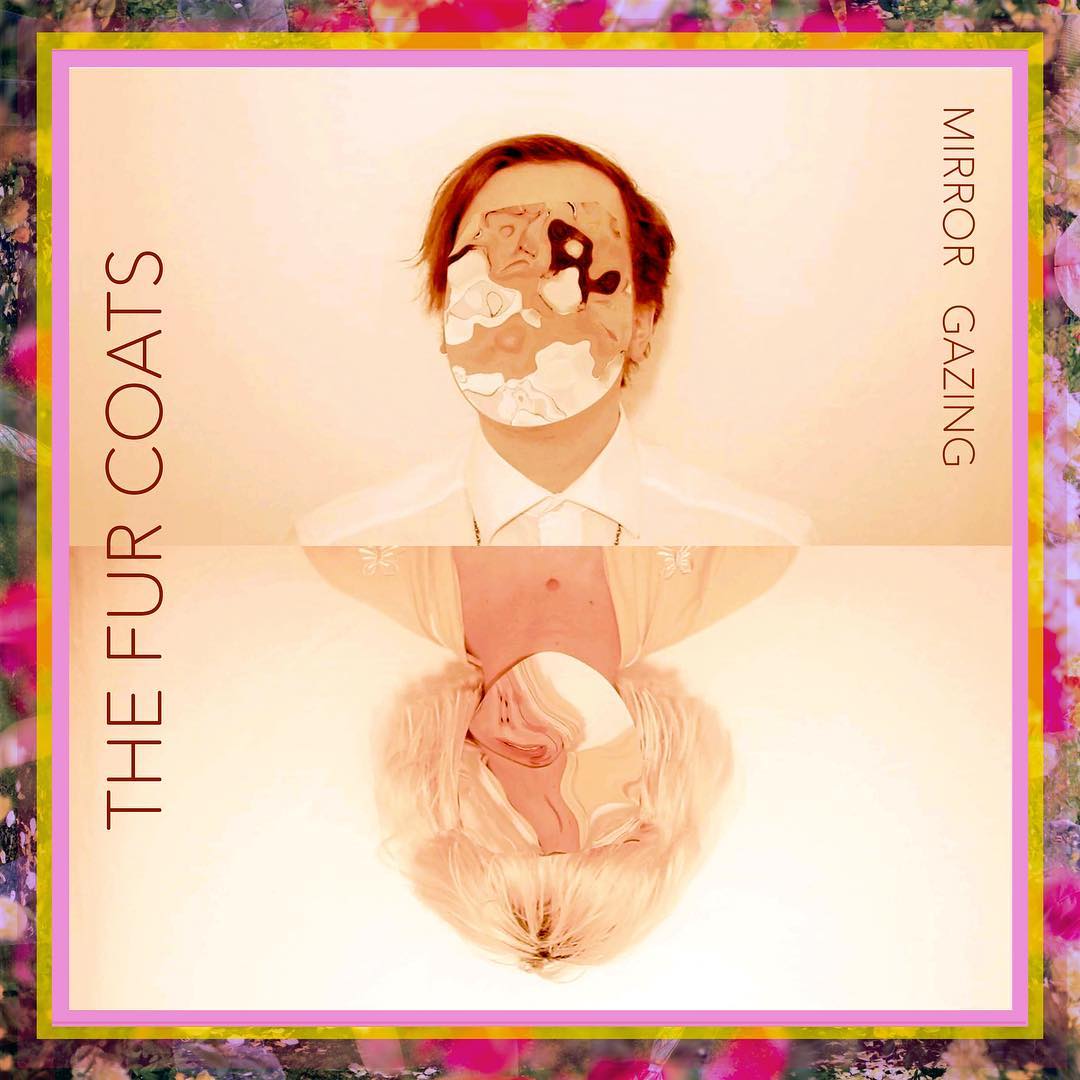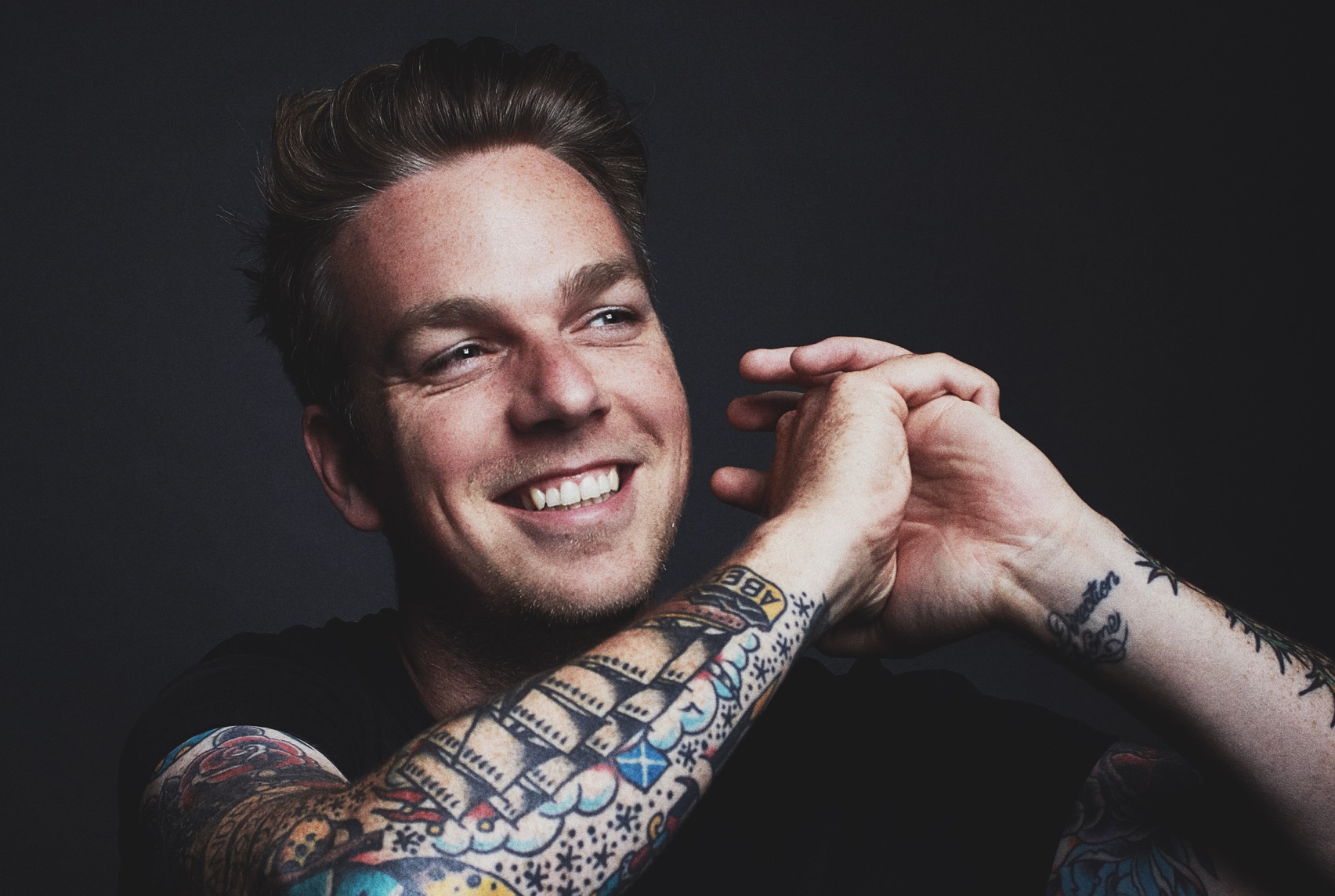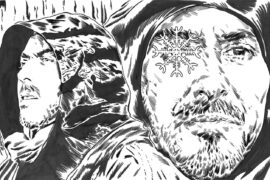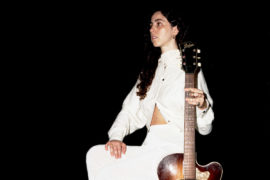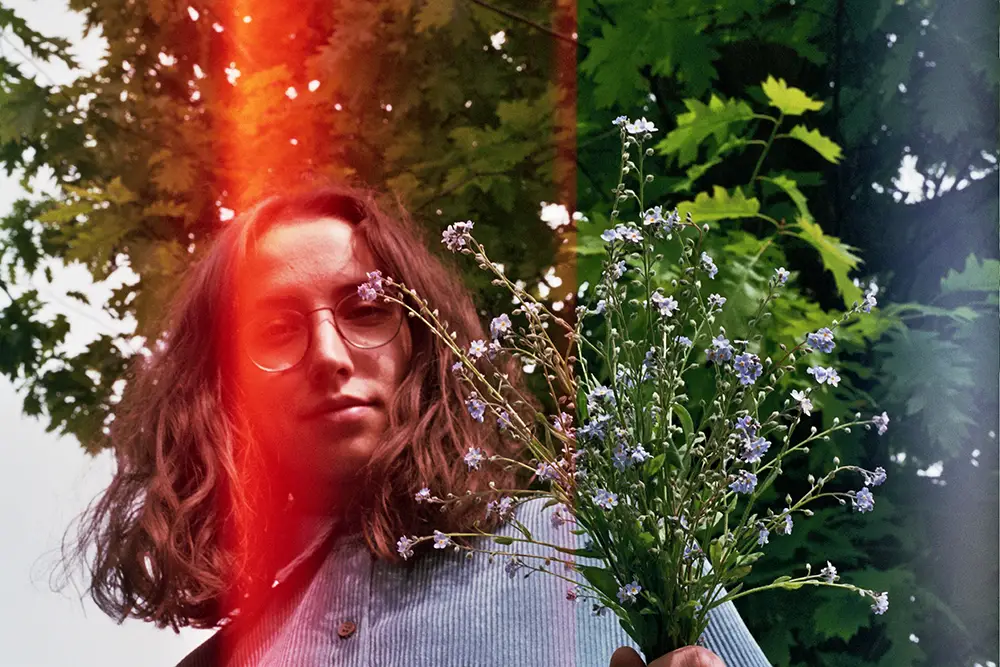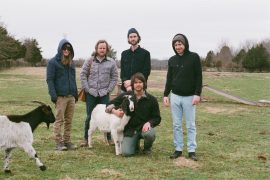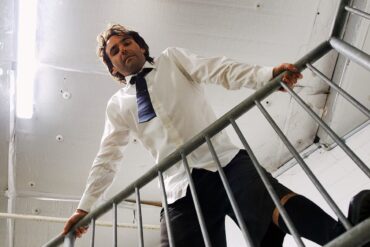Scrolling though Luna Shadow’s Instagram, any viewer can pinpoint her aesthetic. It’s simple: the black and white photos, all cropped to a similar size, create a dreary, yet classic representation of the Los Angeles lifestyle. From palm trees to sandy beaches, it’s picturesque, but it’s dark.
Luna Shadows is a picture perfect LA lover with a twist. She’s sweet, yet obscure. She’s dreamy, yet realistic. She’s a not-so-classic, dream-pop queen.
Luna Shadows was created in Echo Park California, in bedroom studios and makeshift closet recording booths with the help of a few friends. Unlike many artists, Shadows is responsible for every aspect of her sound. From lyrics to production, each step is a hands-on, immersive experience that allows her to fully embrace her image, aesthetic and artistry.

With her four-track debut EP, Summertime, which was independently released in July of this year, Luna Shadows has shown multiple sides of her artistic vision. Still, the collection is fluid with a cohesive West Coast aura and lyrics so luscious any listener will dream of the ocean and cool summer nights.
East Coast raised, Shadows moved to California in 2008 simply to chase her dream of living in a warmer climate and to get out of the harsh-edged, unapologetic streets of New York. In LA she found her inspiration in sun-washed experiences and mountain-lined city views, but when she satisfied her yearning for LA it never felt like a relief.
In Shadows’ lyrics, there’s a sense of doubt. Her stories speak of love, hidden under West Coast metaphors and dreamy production. It’s a daze of reality and underlying tribulations that create a delicately dark indie-pop sound. Descriptions of LA may be seen as just that: a love affair with the city she’s from. But Shadows’ lyrics hold messages of infatuation and uneasiness in a circumspect dimness. The personal discomfort in her words is counteracted seamlessly by the comfortable coddling of her production’s otherworldly effects, making for a dark reverie of depression and mimicked contentment.
Watch: “Hallelujah California” – Luna Shadows
[youtube=https://youtu.be/2102EoTWRss?t=0s]“Waves,” Shadows’ current top song on Spotify, has become the second of her tracks, standing beside “Hallelujah California,” to break one million streams. The first line of “Waves” speaks of “going off in a daydream,” a description almost too perfect for the atmosphere surrounding her sound. Shadows, with production assistance from members of indie bands Now Now and The Naked And Famous, has perfected a hazy tone, reminiscent of a trance or false reality. It adds depth for listener’s enjoyment, but on a deeper level, represents that the messages portrayed may not be true to form. They may manifest in similes rather than raw statements and each dreamy sound and tempo may serve as an ironic opposite.
“Waves” tells the story of someone falling into a relationship or event, aware of negative possibilities, but allowing themselves to be consumed by the “Waves” regardless. It’s this sense of caution that can be heard in most of Shadows’ tracks, the idea of never fully giving into pleasure, a slight skepticism in every event.
Listen: “Waves” – Luna Shadows
[soundcloud url=”https://api.soundcloud.com/tracks/269484958″ params=”color=ff5500&auto_play=false&hide_related=false&show_comments=true&show_user=true&show_reposts=false” width=”100%” height=”166″ iframe=”true” /]“Cherry” is different in message and tune, as close to sweet pop as Shadows will venture. The song echoes with a lighter, airier message of love and craving. It’s a tale of longing, of pure infatuation, displayed in innocently sweet words and summertime fantasies.
“Cry Wolf,” takes a harsher stance on love, with lyrics like, “One of these nights somebodies gonna leave you. No one’s gonna save you.” It’s in Shadows’ challenging and dissecting of emotions that proves her to be better than syonymous with a sad girl on Tumblr. She’s an artist whose writing falls somewhere between poetic depression and internal madness. With deceivingly catchy beats and hidden meanings, it’s nearly impossible to decipher which is true.
It’s all a part of the persona that is Luna Shadows. There’s a thin veil of mystery cast on every part of her product. From her music to her personal identity, there is never a solid answer. The lack of definition leaves room for assumptions and individual interpretation, making Shadows entirely intriguing. From her branding to her beautifully calculated artistic choices, Shadows is a dose of reality in the most untouchable, exalting light. She very well may be the voice of a generation known to be soaked in sadness and false perception.
Atwood Magazine caught up with Luna Shadows to talk about writing her hit “Hallelujah California” and her love of LA, being a female producer in a profession dominated by males and how imagery is crucial to her artistic vision.

A CONVERSATION WITH LUNA SHADOWS
Atwood Magazine: You released your debut EP Summertime in July. While the four tracks are cohesive, they seem to vary in style. What was the inspiration behind that decision?
Luna: Good question. Well, yeah. So, I think that lyrically especially, that’s where I try to keep things a bit semantic. That’s sort of how I picked those four songs. I write a lot. I have a lot more than four songs it’s just that I put those forward first because I felt that they fit well together as a group despite that musically, they are a bit different. We tried to have some threads that, you know, musically went through the whole thing. Lyrically, that’s where I try to keep things more cohesive and semantic. So, like, Summertime as a title was the umbrella over all four songs. They all have this, like, endless summer, Californian metaphors and imagery. With that, I felt like I could take some liberties with the actual music and the sounds. I think, we still tried to be cohesive with the production and with the music as well. The songs have similar chord progressions and stuff like that, but you’re right, there are some songs that are dancier and some songs that are slower. I think that it’s like on a per-song basis. So whatever serves the song best. I just try to think about what the song is about, what I’m trying to put forward and do I want to have a musical mood that matches that. Sometimes I like to intentionally go against what I’m saying. For example, “Cry Wolf,” the first track. The lyrics are kind of dark and sinister but the music is pretty bouncy. I like putting those things up against each other sometimes. I would say that it’s really on a per-song basis that I decide, musically, what those things are going to sound like. And then lyrically I tie things together so I make sure I’m telling a story that makes sense, even if it’s abstract from start to finish.
That’s a really cool concept.
Luna: Thanks!
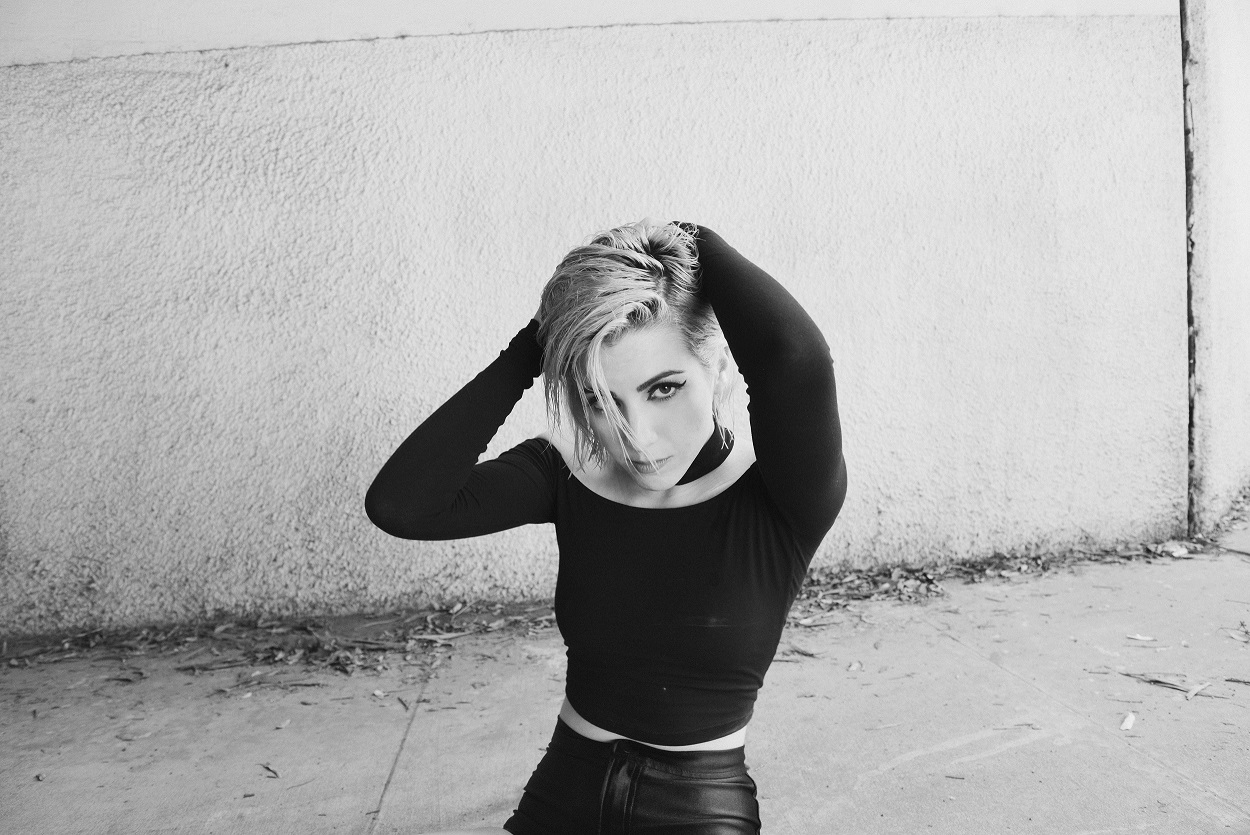
You mentioned that the songs have that California vibe to them. Especially, you know, “Hallelujah California” explores how much you love the West Coast. Can you tell me a little bit about your relationship with LA?
Luna: Yeah. So, I was actually born in New York and I moved here almost 10 years ago in 2007, 2008. One of the two. I visited in 2007, moved here in 2008. I always felt like I wanted to be here even before I had ever been here. I had always been dreaming of living here. As soon as I could I came over here. For me, I feel like I’m a much better fit in LA than I was in New York. New York is a great city, but it’s very aggressive and it’s so insensitive in so many ways, so hustle and bustle. LA, it still has elements…there are still lots of people in the arts and everyone pushes for stuff, but at the same time, we have all this nature. Coming from New York I was shocked. In our downtown, in the background, there are mountains. And I know that’s kind of really funny, but still, sometimes I look at the downtown and am like “I can’t believe there are mountains behind that.” In New York, to get to the nearest mountain you have to drive a couple of hours. So, anyway, it was both a literal thing, because I love living in LA: I love the weather. I love the nature. I like the city. But also a metaphorical thing of, like, summertime. I said this in a recent interview, summertime for me, like, coming from New York, I would wait all year for summer. It was the thing I always looked forward to. Those things kind of seeped into my music because, coincidently, where I felt like I was at in life, in the bigger picture. I was entering some kind of summertime, this thing I was waiting for. All of these years I’d been putting effort into this music and bringing it together. I kind of saw those two themes and I ran with them. So, living in LA, there’s this literal element, where I’m literally talking about LA and the things around me, and there’s this metaphorical thing where it’s like this endless summer. And what does that mean? Is it everything I thought it would be? Where do I have question marks about some things? Does that make sense?
Yes, definitely! And, coincidently, according to Spotify, your largest number of listeners are in Manhattan. Does that surprise you given how West Coast your music is?
Luna: You know, I check those numbers a lot and it actually shifts. Manhattan is always up there. LA is always up there. And, strangely enough, Canada is up there. Or it was. I don’t know it moves a lot, but for most of the year, it was. But I don’t know. Maybe it’s that all of the people in the cold places are dreaming of the sunshine. (Laughs.) Yeah, but I don’t know. It’s really cool. It makes me happy.
And much of your music was created by you and your friends in your bedroom. Can you explain that creative process?
Luna: Yeah, so, we kind of have a little system at this point. I’m really in control of my vision and my songs and everything I put forward visually. I really try to be the true voice behind everything that I do. And then, that being said, I have some of the most awesome, amazingly talented friends and it would be so senseless to not involve them. I brought in these two producers, Brad and Thom. Brad Hale, he goes by Sombear, and he’s in this band called Now Now. They’re a really great indie band from Minneapolis. And then Thom Powers is from this band called The Naked And Famous. The two of them are like alternative, indie geniuses when it comes to creating those soundscapes. They, like me, all three of us, just work on our computers. It’s 2016, so you can make your album on a laptop. It’s pretty cool. The three of us , either all three of us or two of us, we tend to just get together in a room and we all hop on different things. I always go straight for lyrics and melody. All of the lyrics and melodies are me. A lot of the chord progressions are me. And then Brad and Thom are great with beats. But, then again, we all kind of hop around depending on the day and depending on what we’re feeling. We try not to restrict ourselves. We use all digital instruments. Everything is digital except the guitars. Everything else is recorded with keyboards. The vocals I do in my friend’s closet (laughs.) She’s isolated it really well. I go in there and I bring my laptop and hook it up to her computer with a screen-share because I’m so shy that I don’t like singing in front of people, even engineers and friends. I just know myself, and I know I’ll take more risks if I do it by myself. So I learned how to vocal engineer. I record and edit my own vocals. And that’s pretty funny. Doing it in this closet, like, fake vocal booth. And then my computer will overheat and the fans start going kind of crazy and it makes a lot of sounds that you don’t want on your recording, so I have to cool off the computer. I’ll, like, put it in the refrigerator for a few minutes at a time and then take it out (laughs.)
(Laughs) Oh my gosh, that’s actually a pretty good idea.
Luna: Yeah, you know you’ve gotta think on your feet! (Laughs.) But yeah, nothing is recorded in a studio or anything. I record all of my demos at home. It’s right next to my bed. It’s uncomfortably close to my bed. I wake up, open my eyes and my microphone is, like hovering over me.
I know you produce a lot of your work, and there aren’t many female producers in the industry. Has that proven to be a challenge in any way?
Luna: Yeah, definitely. I used to write a lot on acoustic instruments. I felt like there was a big divide between the songs I was writing and the songs that I liked to listen to in terms of my favorite artists. The main difference was the production. So, I spent a long time and a lot of years teaching myself how to operate ProTools and Abelton. It’s an exciting time, I think, to be a girl in music, and it’s also challenging. I do feel excited that I get to be one of the people who’s out there doing it. On the other hand, it can be tough because it has been a male-dominated environment. I think the hardest part is just convincing people that I know what I’m doing. Because there aren’t a lot of female producers, I’ll show up and people will assume I don’t know anything. That happens on a pretty regular basis. Not with the people I work with at this point. But when I’m in new settings a lot of people will be skeptical from the second I walk in, that I know anything. I have to, kind of, like, say, “Oh I know how to produce. I know what this is,” so that it isn’t re-explained to me. But that being said, I think if you want to become a producer, it’s a great time, as a girl, to do it because there’s so much available to you online. It’s a lot of asking questions and not being afraid to ask a stupid question because it’s pretty complicated. It’s a lot of trial and error.
As for a recording studio experience, do you feel it’s something you’d ever want to try or do you see yourself continuing making your music in the way you have been, just at home.
Luna: Um, good question. I’ve definitely had recording studio experiences in the past. The main thing is that, as an independent artist, recording studios are really, really, really expensive. Because my music is so electronic and everything is done on the computer there’s really no need for a studio except for recording vocals because everything is digital. We aren’t recording anything in a room, which is the point of a studio, you know if you’re recording live guitars or live drums. All of our sounds are electronic. So there’s really no need for a studio unless it’s for singing. And with singing, I would be happy to record in a studio but it requires a much bigger budget. As an independent artist, I’d rather put those funds toward creating more stuff. Creating music videos, creating more imagery and stuff. When I have the ability to do something competitive on my own, home environment or in a friend’s studio it feels a bit redundant. But, if someone came along and offered me a studio I probably wouldn’t say no (laughs.)
And you said you focus a lot on lyrics. Your music doesn’t really seem to be fueled by romantic love but rather the love of your surroundings and lessons you’ve learned. What would you say are your biggest writing inspirations.
Luna: Actually, I would disagree. Well, I like that you don’t think it’s fueled by romantic love. That’s cool. It means that there are multiple interpretations. Actually, all four of the songs on my EP are a bit romantically driven. Well, maybe not “Hallelujah California” as much, but “Cry Wolf,” “Waves,” and “Cherry.” I wrote them about romantic things but I kind of disguised that with this California imagery. I would say that romantic love is definitely…most people who are musicians and more than 90 percent of the songs ever written are about love. It’s a tricky topic. But yeah, I think, definitely, it’s a combination of romantic love, surroundings, and just, in general, I like to write about things that are troubling for me. I don’t really write about triumphs and things that are joyful to me. I think I go to music specifically to deal with things. As a coping mechanism, it’s a way for me too, and I’m like a hyper, anxious person, it’s a way for me to create a kind of organization with the chaos I feel internally. So, I kind of try to use music, especially lyrics, as a way to bring structure to things I can’t really understand and I can’t really deal with. I don’t really ever write songs about just happy thing. Most of the things I write about tend to be just things that are troubling to me. Even if I disguise it as a pop song or with summery themes, it’s usually about something that’s kind of messed up.
Watch: “Cherry” – Luna Shadows
[youtube=https://youtu.be/AuhNkHQDQwE?t=0s]
It sounds like your writing is really just a coping mechanism.
Luna: Yeah! Exactly.
Is there any one moment that you remember being in and thinking “Man, I have to go home and write a song about this.”
Luna: Yeah. Let’s see. On the EP… I think “Hallelujah California” was interesting because that’s my most popular song on Spotify. We just made a music video for it. That was the song, you know, we had written other ones, but that was the song that kind of put everything on a grid for me. I was trying to figure out my musical style, my lyrical style, and everything was kind of floating in space for me still. I had all of these ideas but they weren’t quite organized yet in a cohesive way. So, the day we started writing that song, it was Thom and I. I was playing these arpeggios on the piano and he was making a little beat. I felt super uninspired that day. It was one of those days I just showed up like it was my job and I had nothing to say, nothing to write about. Or I did and I didn’t know it. I didn’t feel like I had to run home or anything. And we made the bed of music before I wrote any of the lyrics or melody. I had no idea what the song was going to be about. We were just kind of vibing on this cool kind of musical bed that we had created. I went home and was like “This sounds kind of cool.” I’m so obsessed with LA, I love living here and, you know, Phantom Planet has that song “California Here We Come,” from 10, 15 years ago. There’s “Hotel California,” and then there’s “California Girls” by Katy Perry but I felt like the anthem hadn’t been updated in a while and it had never been dark. It has always been kind of, like, bikinis and the beach, the 101, it wasn’t really detailed at least. So, I wanted to do something that was a bit more in touch with what’s actually going on. On the one hand, we do have the beach and we do have the palm trees. That sort of stuff, that sort of paradise is kind of real. But, at the same time, there’s all of this other stuff. I felt like people had been leaving a lot of stuff out and I wanted to update it. So, I told Thom that I had this idea. I said “you know, my dad, when he was younger, his favorite song was Hallelujah,” the Lenard Cohen song, you know, Jeff Buckley does it or whatever.” And my dad always said that it was especially sad because it was this really depressing song in a major key. Something about that juxtaposition was really heartbreaking. Hearing something so sad being forced into a place of content. Thom said that’s what you should write your song about. And it clicked. So I ran home and wrote the whole thing. I really labored over these lyrics and the rhymes and stuff. It took me a day or two, but I just, the inspiration hit a lot later than the initial thing. Like, it was really interesting to go from a day that I felt like I had nothing to say, and I was really uninspired, to a few days later when I couldn’t wait to get it all out. Once I figure it out, that was the song that, when we first finished, I said: “Everything else needs to center around this.” All the other images. All the other things. This is my, sort of, mission statement, I think. This is the first thing that I can think of that I’d like to put forward. So, yeah.
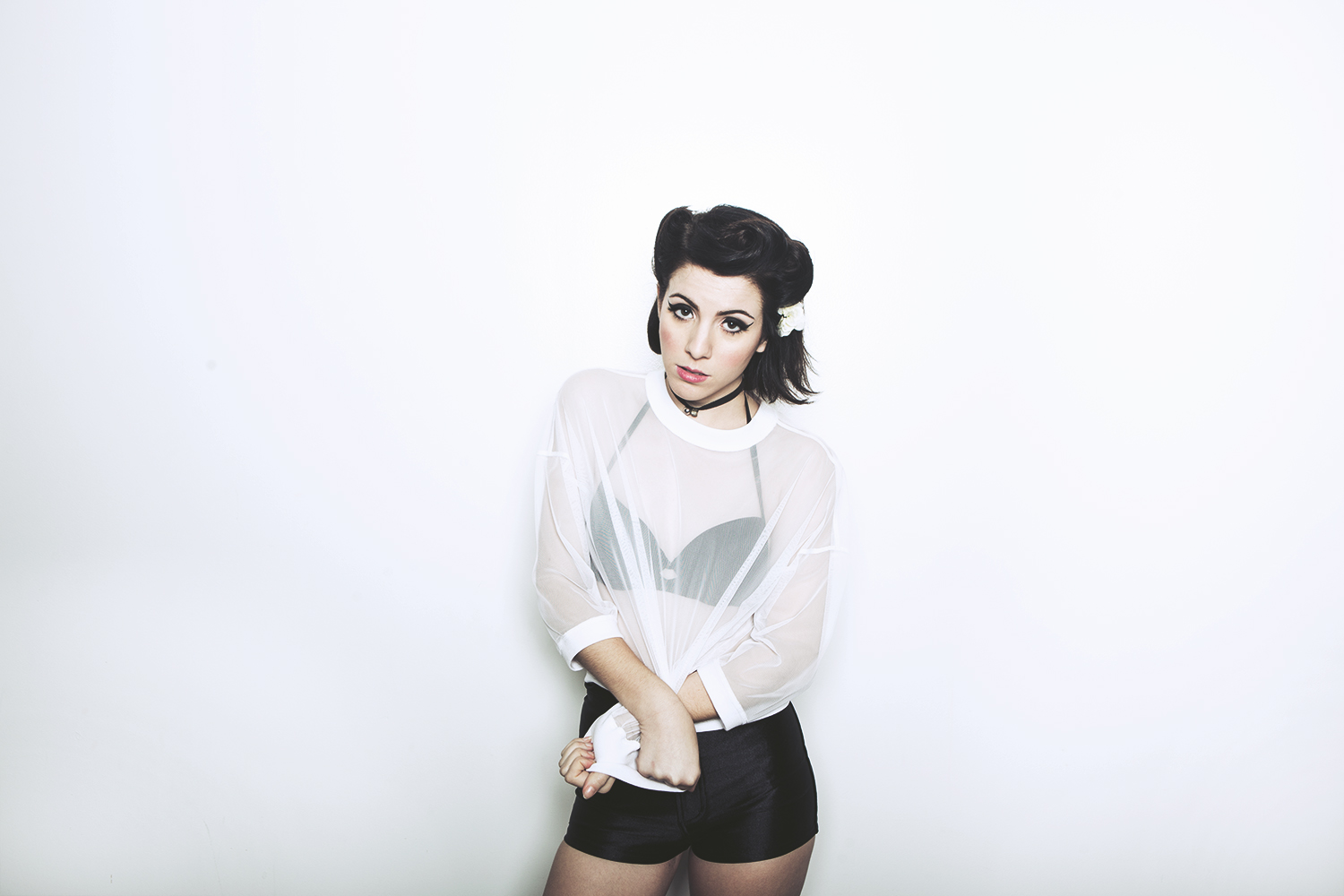
That’s a really cool story.
Luna: (Laughs) Thanks! I’m glad you liked it. It was a little long.
The music video for that song, “Hallelujah California,” is all in black and white. Anyone who follows you on social media knows you follow suit in that as well. What does the lack of color mean to your aesthetic or your musical vision?
Luna: Cool. When I was thinking about how I wanted to represent my music visually, which, I try to think of myself, or I try to be, an artist who thinks about things beyond music. I don’t take the word artist lightly. If I want to be an artist, I want to be a musical artist and also a visual artist as best as I possibly can. I think that today, a lot of music is really quite dependent on visuals, whether we like it or not. So I really take that job seriously. And, so, I spent a long time thinking about how I wanted to translate my music into, not just social media, but what it looked like. When I was a little kid, my mom, she tells this story to me now, I used to, for some reason, associate certain words that were abstract concepts with pictures. So, she would say “Monday” and in my head, when I think of the word “Monday” I still see this weird shape. It looks kind of like a seashell. So, (laughs), that’s so weird, I don’t know why. Pairing sounds and pictures is something that I think I do naturally. So, when it came to music, I don’t know. I did this photo shoot, my first photo shoot for this record before I even knew what it was, and this photographer gave me back the [photos] and they were just in black and white. That kind of just set off a little switch and I was like, “I think this might be the thing.” Black and white is really simple and it’s really classic. It can easily be really overdone. But what I tried to do was pair this like, really summery, Californian imagery, which is just stuff I see on the street every day. I take picture of palm trees intersecting with wires and just things I see around LA, like this whole urban and nature juxtaposition that most people represent with really bright colors. Usually, pictures of LA are beautiful palm trees and sunsets and I thought, well, what if I just take pictures like that and cast some darkness over it in a way that it is this sort of paradise looking thing, but it also has a dark side to it. As an artist that is how I see myself. I feel like most people who meet me would think that I was friendly and kind of a bright light, but I have this, sort of, darkness as well which is like infinite sadness and a lot of quiet anger or confusion, just like anybody else, stuff that I struggle with. I just wanted to make sure that darkness came across because I didn’t want it to be mistaken for really bright, fun pop music. I wanted to make sure that people knew that there was something else to it, that there was a twist and that that there was something deeper than surface level pop music, sunshine and sunsets.
Yeah, definitely. It sounds like you’re really trying to take the whole idea of LA and break it down to another reality.
Luna: Yeah! That’s like what I was saying earlier with the literal LA and the way that I see it and how it affects me. I can’t imagine not being here, and I know that my life is heavily influenced by living here, so it would be hard for me to imagine writing music that didn’t somehow reflect the place that I’m in. But then, I also kind of have this metaphor idea of LA that is recurring, which is, I guess, a place where most people view, especially myself not being from LA, I grew up thinking that LA was this place, you know, the California dream, this paradise where it’s always sunny and the weather is always perfect and everyone is famous. Coming here, there’s both a truth to it and also a complete other thing, this other side that I had no idea existed. And I like that. I struggled with the idea that I could be in the place that I wanted to be. I got to the place I dreamed of and was kind of like, “Now what? What do I do now?” How can you be in the place you want to be and still feel like there’s stuff you want to do or like there’s something missing? It’s like that never-ending “Well, when you get what you want, you start wanting something else.” For some reason, LA, as a place, was sort of synonymous with that feeling for me. I got here. I spent my entire life wanting to be here. I got here and I both feel fulfilled and also like I want something else. So that’s kind of disorienting. I thought it was a cool concept to write about and, like, to steal from the literal experience of being here and bring it to a more metaphorical place, which I think is something everyone can relate to, that never-ending desire to keep pushing forward and to find something else. You think you’ve arrived at the thing you want and as soon as you get there, it morphs into this other thing and you’re reaching for something else entirely.
I think that’s really relatable. So, what has been the biggest adjustment since releasing Summertime?
Luna: Well, I think the biggest adjustment has been, it’s been mostly a good adjustment. I spent four years really, like, in an incubator making this. Specifically the last two years before releasing it I spent writing those songs and recording them and demoing them and changing them and writing all of these other songs and picking those four. That EP took two years. Before that, I had written an album that never came out that I threw away because it just wasn’t quite good enough. So, that was really my whole life leading up to this in one way, all the musical training I’ve had and stuff. But, really, the last four years before the release, I was working on my music and trying to figure out my sound and I had such severe anxiety, and I was so worried, and I had no idea how it was going to go or if it was going to go, if it would ever come out. I just had no idea what was going to happen and like, the unknown was really, really unbearable. I couldn’t eat. I couldn’t sleep. I was starting to go crazy and I just kind of decided that I needed to start putting things out. So we made this little plan. I released my singles and my EP. The day I put my first song on the Internet I didn’t have any fans or any following. We put it up on this blog, Neon Gold, and within the first 24 or 48 hours, there were 10,000 plays. Which, in the grand scheme of the Internet is not that much, but it was pretty crazy. I didn’t even know if a few hundred people would hear it. I didn’t know if it would get to a thousand. The sense of release I had. [Before,] I was sitting next to my computer uploading the first song, shaking. I was so, so afraid. I think the biggest adjustment, to go back to your question, is just having some sense of relief. It almost feels like when you’re just creating and you’re not sharing anything, and you have no validation at all, it starts to feel maddening. You’re just in this loop. You can’t tell if things are good. You’ve heard it so many times. It’s so disorienting and it makes you crazy. It fills you with doubt. So the adjustment is a mostly really great adjustment, which is that it seems like some people care. It seems like I do have a reason to continue. I feel a bit more relaxed knowing that, even if this is as big as it got, that there are people who are really awesome and they care. I don’t feel like I’ve done that much. I’m an artist so I’ll always feel self-deprecating. But, I’ve been getting lots of letters from fans and tweets. People have been so nice to me. I feel, if I could rewind to this time last year before I put anything out, you’d be talking to a totally different person because I was so anxious all the time. Now, I’m anxious for other reasons, like making sure that I keep up with myself and I can continue to deliver all that I’m promising. At the same time, I know the feeling. I know that I’ve had it before and I know that I have to get through it, keep going, keep putting out work and keep showing up. I need to stay on course.

What are you most proud of in your musical evolution between the album that you ended up throwing away and your EP?
Luna: The production. Like I was saying, I’ve been writing songs for a long time. I have hundreds of songs that I’ve written. I put four out but, I threw away an album, I threw away ton of songs before that. I have songs I don’t even remember writing. Songwriting has always been something that I’ve loved to do. Production was not always something that I loved to do. I don’t think it’s because I ever disliked it. I just felt like it was really unfamiliar and I was really afraid to step into it myself. Not to focus on the gender divide, but when I was in school, girls weren’t really encouraged to produce, at least, like, when I went to high school. It was kind of something like “Oh, that’s something the guys already know how to do, so let’s leave it to them.” So, it’s not like I couldn’t do it, but at some point when you’re not in an environment where you have that many idols to look up to or people encouraging you to try things, you become afraid and you step away from it. So, I think, for a long time I just kind of left production to whoever else: to people who already knew how to do it. I just kind of stepped aside. I think the main reason I’m a lot happier with my music now is because I know how to produce. I learned how to produce. I took it into my own hands. Especially with the vocal production. It’s really hard. Singing and recording singing are two totally different things. You can be a great singer and you can sound like shit on a recording if you don’t know how to interact with microphones, if you don’t know how to compile your takes. I think there are a lot of people who are great engineers but don’t necessarily have a good ear for pop vocals. That’s something I really studied as a child of the radio: listening to how pop vocals are assembled and what kind of inflections singers use. I felt like I, even if I didn’t have the technical skills, I had the taste for it. So, I kicked my own butt and spent many, many, many hours and late nights in studios trying to figure out how to run ProTools, how to record things, the basic set up. I became pretty good at it. At the same time, working with Thom and Brad, I was constantly asking questions about production to the point where I’d feel embarrassed sometimes. I just had to have no ego and get over the fact that I didn’t know what I was doing. I just asked questions every single day and wrote things down. I copied them or asked if I could do it. At some point, I started picking up things by myself and I tried it at home and being selfish with production. Even if someone else is running it I now can confidently say I have the ability to direct them, whereas, in the past, I wouldn’t have been able to. For example, even if I’m working with someone now and they’re working on the drums and I’m working on the lyrics, I’ll be listening in or saying “Can you take that kick drum out? Can we put in a different snare? Can we do this differently?” I’ll take control over the sounds as well as my part of the songwriting, which is not new to me. So, to answer your question, the short answer is learning how to produce and learning how to communicate what I want in production was the number one difference between my previous stuff and this EP and the stuff that will follow.Luna
Speaking of things that will follow, you’re set to release a new collection sometime in 2017. What can we expect from that?
Luna: Good question. I don’t want to say too much because we’re still in the planning phase, but, like I said, I had worked on a lot of songs in that two-year period. Actually, always. I’m currently working on new stuff. I just picked those four songs for Summertime because of how they fit together. But there are a bunch of songs that were composed during the same time and some that I’ve been working on as of late. I’m working to assemble them for 2017 and the release plan is still something that I will keep sort of mysterious, but you can definitely expect lots of new music in 2017.
— — — —
Connect with Luna Shadows on Facebook, Twitter, Instagram
Discover more new music on Atwood’s Picks
cover photo: Luna Shadows © Jasmine Safaeian

